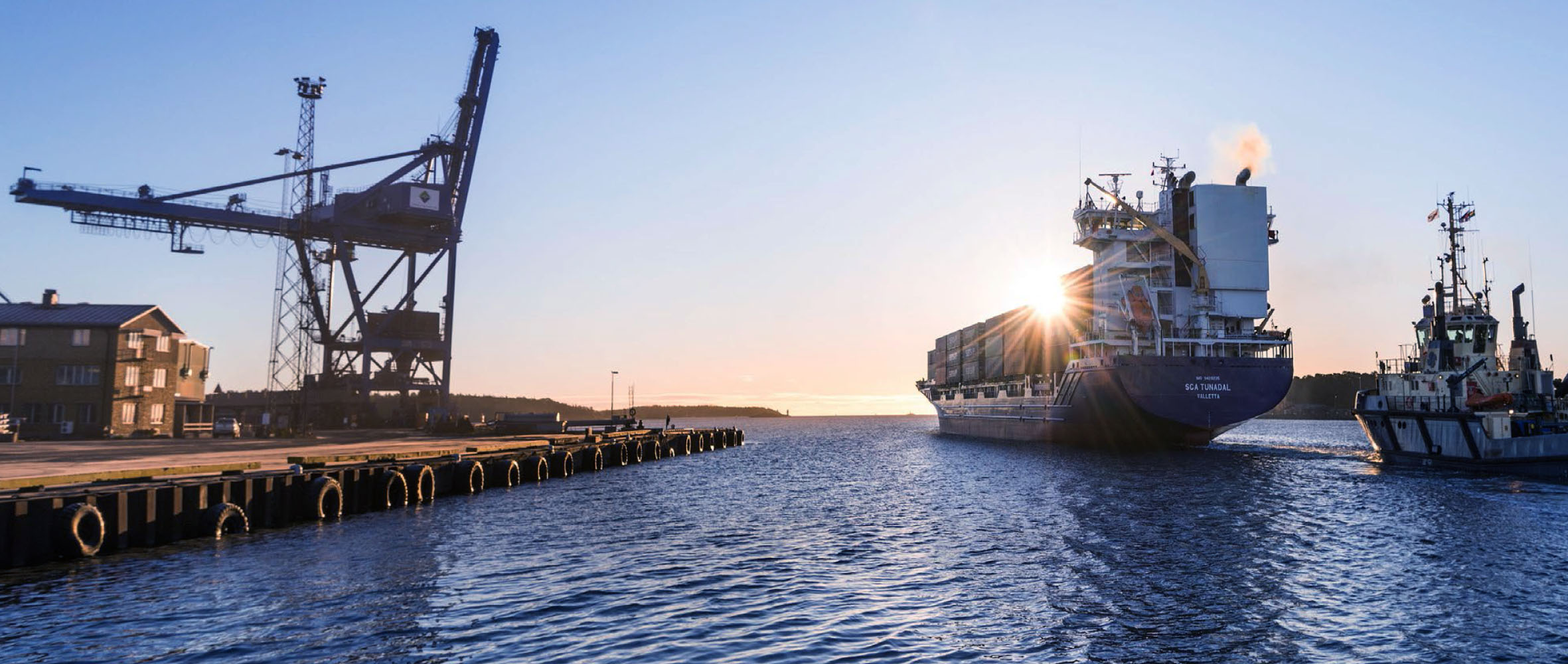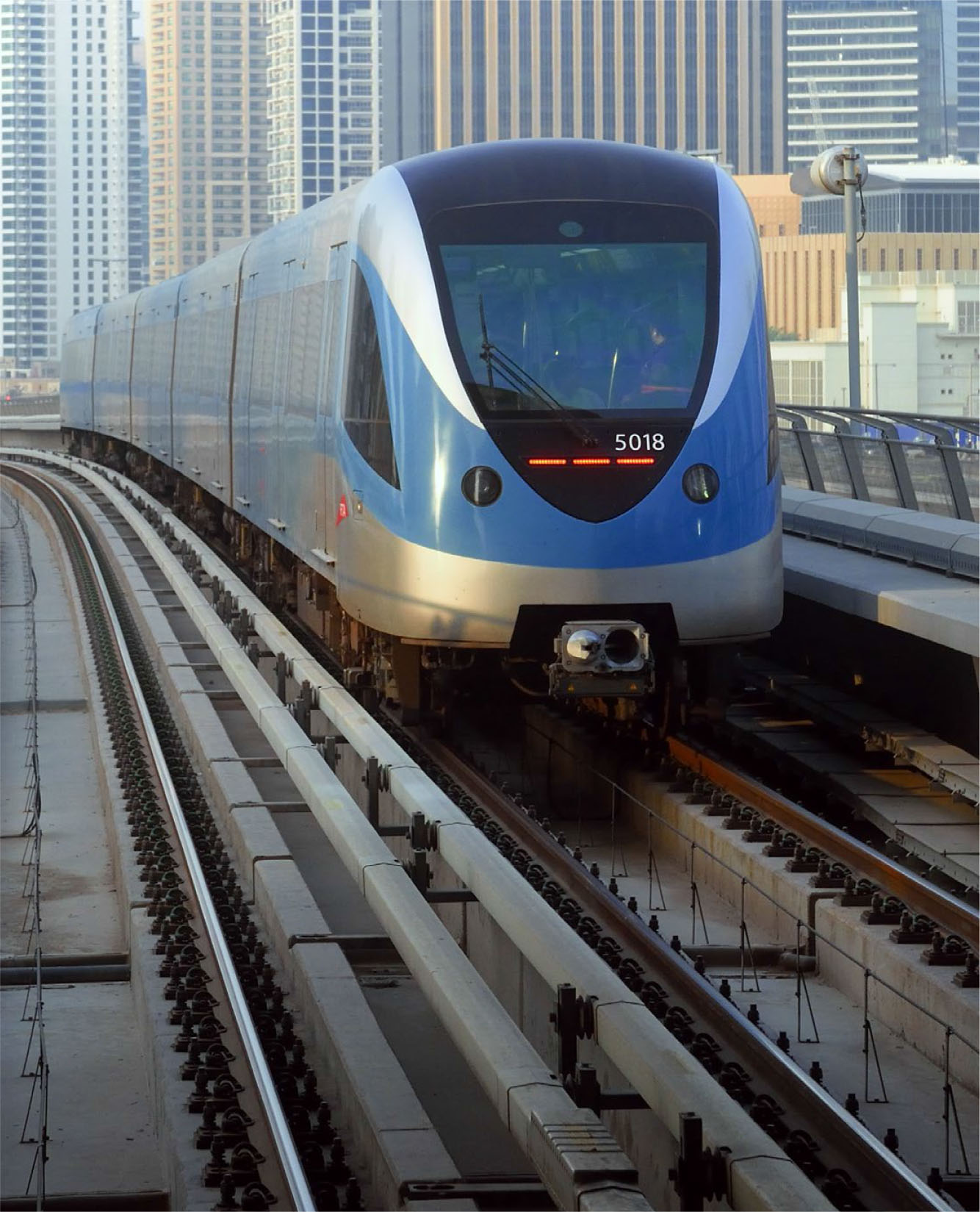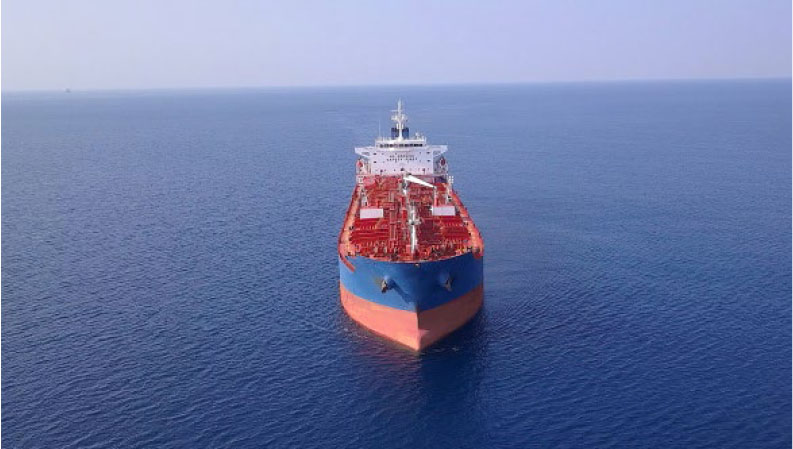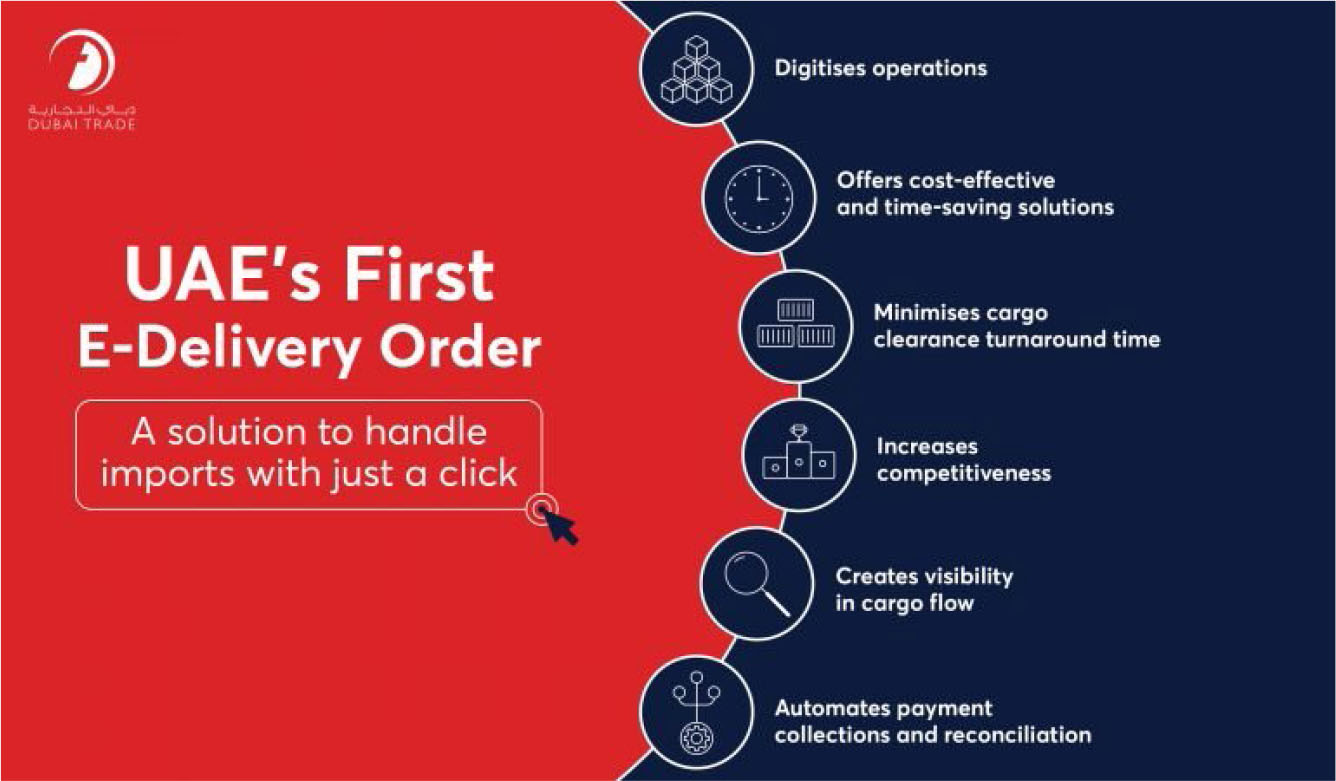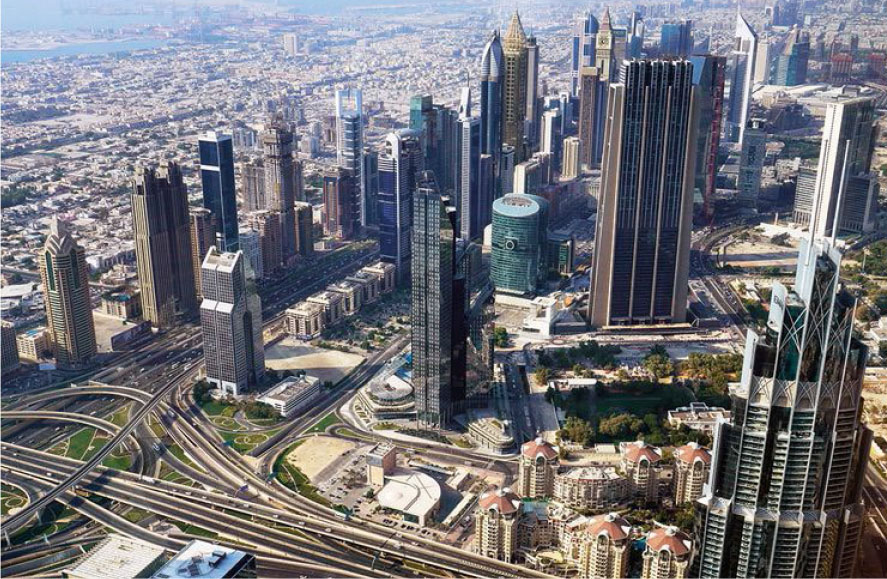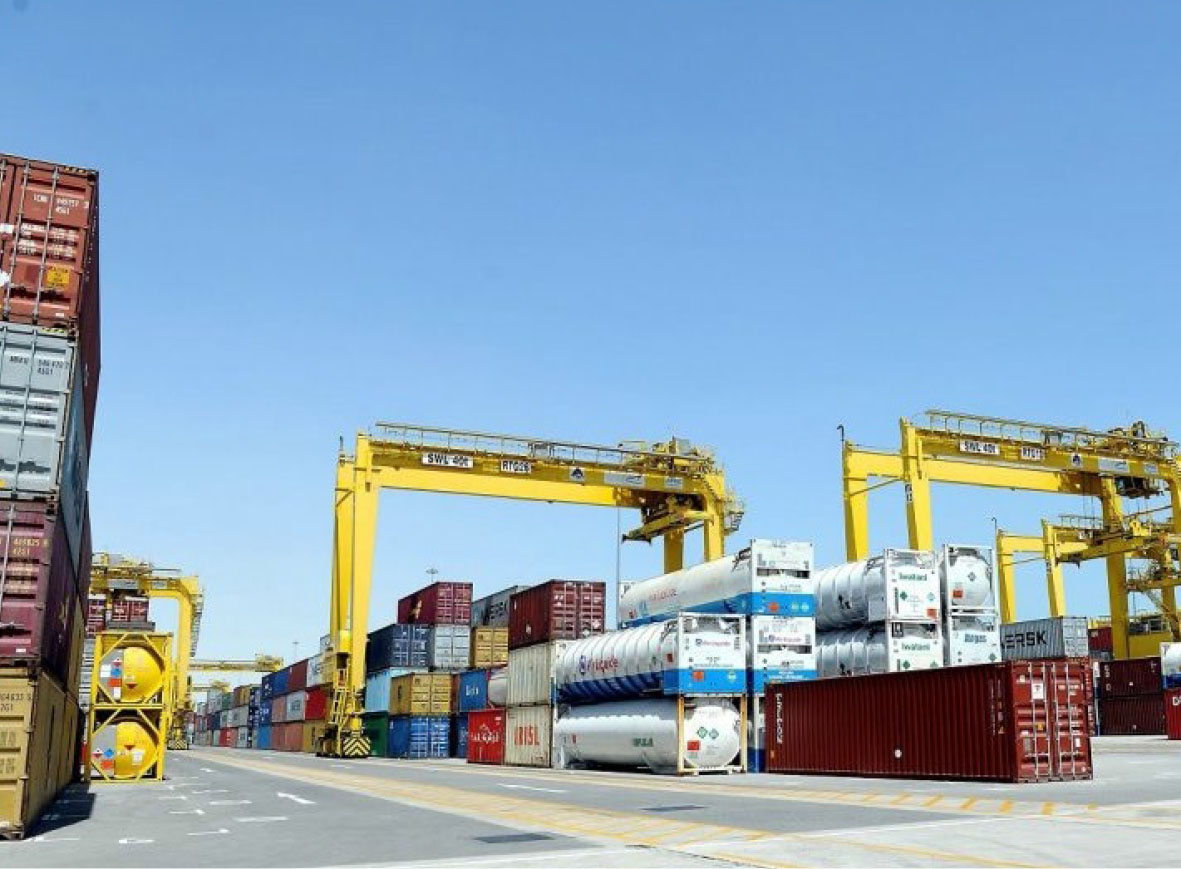SRILANKA SEEKS CHINESE SUPPORT TO BECOME A TRANSSHIPMENT HUB IN THE INDIAN OCEAN
To cut down the voyage cost, shipping companies move towards using larger container vessels as the voyage cost per twenty-foot equivalent unit (TEU) would be reduced by using high capacity vessels. But this view results in large container ships making fewer port calls due to draft restrictions. Though there are few ports calls, there are larger box exchanges.
From the maritime point of view, mega-ships become profitable only when fully utilized with limited port calls. This leads to ports losing direct calls for trade lanes with limited amounts of cargo. Transshipment of cargo is an alternative here that could cover up this loss. Trans-shipment normally happens in the following cases:
† When there is no direct shipping route to any specific destination
† The port is unable to accommodate big vessels.
† When moving the cargo from one country to another to evade trade restrictions.
Ports as Transhipment Hubs
The majority of transshipment cargo are containers and roll-on-roll-off cargo. Containers are utilized for transporting merchandised goods, while roll-on-roll-off cargo (also called RORO) are mostly wheeled cargo such as cars, trucks, semi-trailer trucks, trailers, and railroad cars.
While selecting a port as a trans-shipment hub port, certain factors are taken into consideration:
† Location
† Port accessibility
† Port superstructures
† Port traffic
† Number of services calling at the port
† Availability of dedicated/own terminal
† Performance of the port
† Frequency of delays
† Record of damages
† Port handling charges
† Financial clearance capability
† Efficient husbandry services
† Marketing efforts and personal contacts
Sri Lanka on the Transhipment Map
Out of the 200 ports in South Asia, concentrated in India, 20 of them handle more than 9000 TEU’s of containerized cargo annually. Sri Lanka is a market dominated by trans-shipment and is the 2nd largest player in the region with a throughput of more than 6 million TEUs in 2018. The Port of Colombo is the main transshipment hub, with 80% of throughput coming from transshipment. In 2018, India was recorded as the largest container market moving more than 16 million TEUs, followed by Pakistan at 3.2 million TEUs and Bangladesh at 2.8 million TEUs. Interestingly, Maldives handled less than 100,000 TEUs in 2018.
Sri Lanka will be able to take advantage only if their ports can cater to the large container ships’ requirements that the shipping lines keep adding to their fleet. Sri Lanka renders low quality than counterparts like Hongkong, Singapore, and Dubai in terms of logistics services, physical infrastructure, technology, and a sufficient number of qualified professionals and international participants. LPI (Logistics Performance Indicator) rated Sri Lanka 92nd out of 167 countries in the World bank 2018 aggregated Logistics Performance Indicator. Sri Lanka scored 2.64 in logistics competence that includes competence and quality of logistics services compared to India’s score of 3.18, UAE scored 3.83, Hong Kong 3.94, and Singapore at 4.08. From this rating, it is clear that Sri Lanka has to improve physical infrastructure and human resources development.
Chinese Investments in Sri Lankan Ports
The Hambantota Port in Sri Lanka started its operations in 2011 after completion of its phase one. But its operations failed to generate sufficient revenue to match the debt obligations on the loans obtained for the project. This port was then leased out to the China Merchants Port Holdings Company Limited (CM Port) who have been on their feet trying to ramp up the Sri Lankan port by employing exceptional operational skill, market power, commercial relationships, marketing skills, technological expertise, and access to cheaper finance sources.
As per the ranking, the Port of Colombo stands as the 13th best Connectivity Port globally in the 4th quarter of 2017 and is voted to the top best connectivity port in South Asia. A joint venture $500 million Colombo International Container Terminal (CICT) operated by China and Sri Lanka at the Colombo South Terminal in the Colombo Port handled 2.9 million TEUs in 2019. The CICT feels Ultra Large Container Carriers that makes up for 72% of the terminal and is the first and only deepwater port in South Asia capable of handling the large vessels afloat.
The Sri Lankan government had signed a diplomatic “memorandum of cooperation” (MOC) with India and Japan for a tripartite effort to develop the strategic East Container Terminal (ECT). With Japan and India’s presence in the Colombo Port with China’s CICT will improve its business outlook and value through transshipment activities. Hence partnering with a global maritime player like China is the most practical way to fulfill maritime development and connectivity


